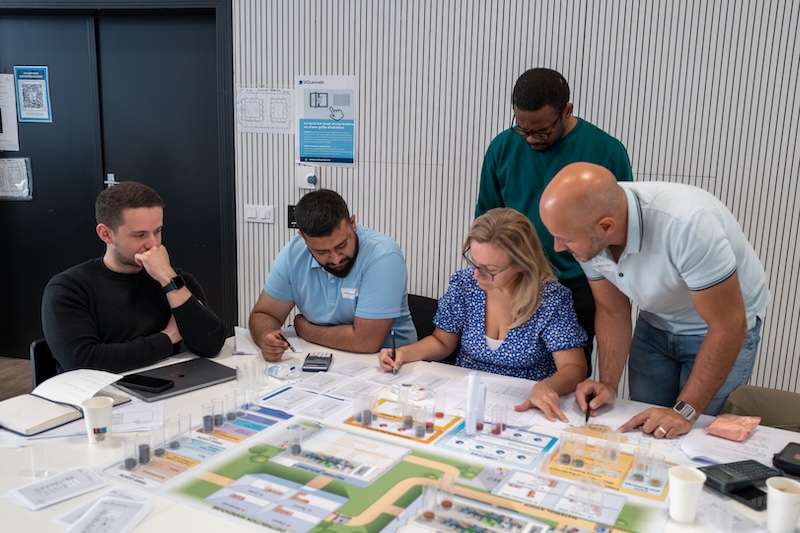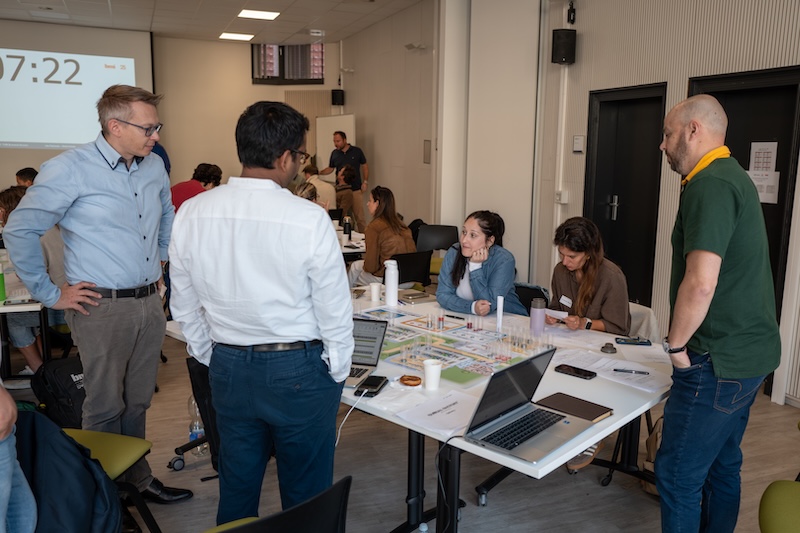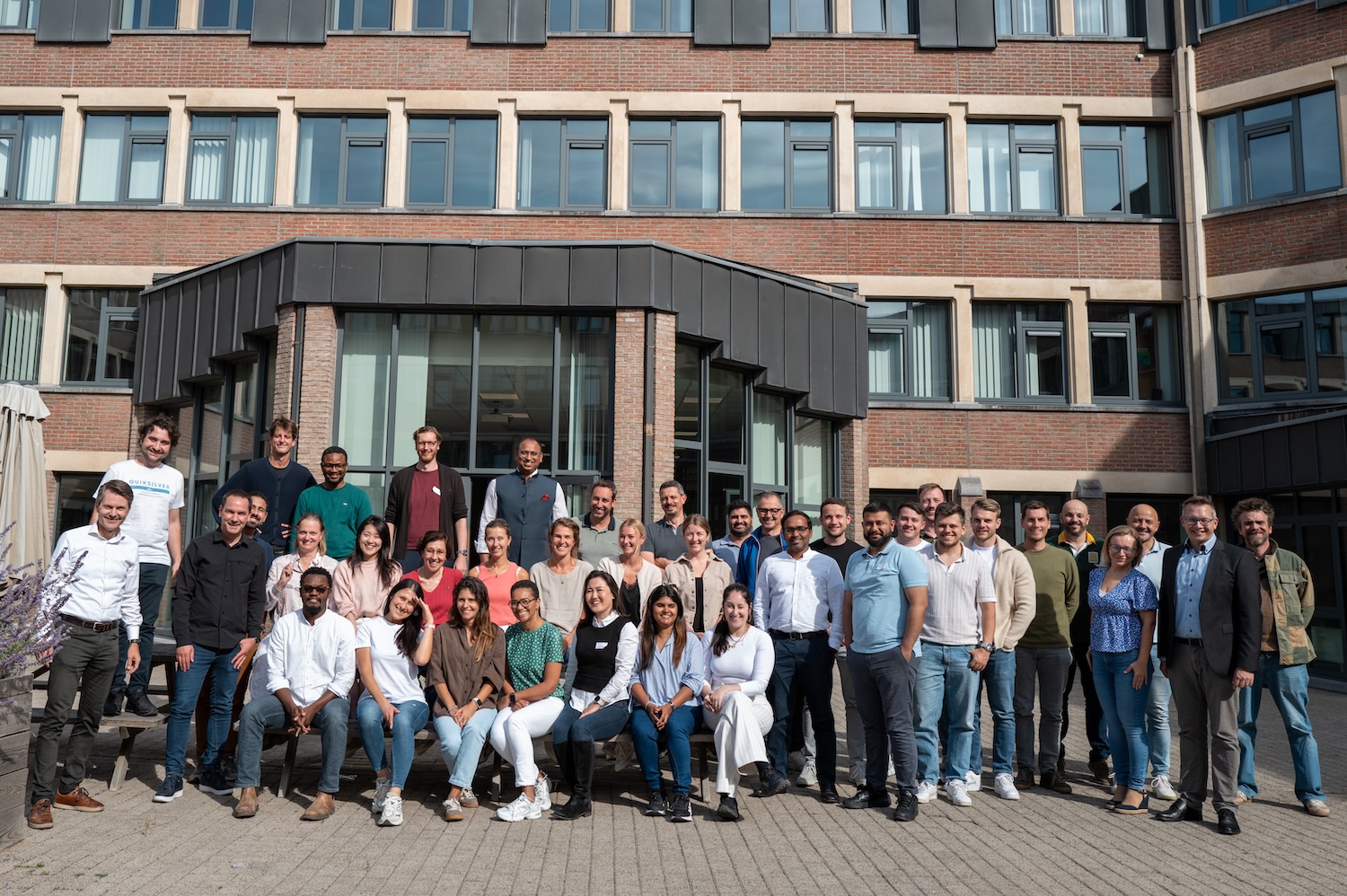Earlier this month in September 2025, MBA students from Belgium and Germany met at UC Louvain in Louvain-la-Neuve for a joint module that turned business learning into a hands-on experience. Guided by Prof. Jan Freidank and Prof. Simon Kiesel from THM Business School, German students mixed with the MBA of BMI Brussels @ Louvain School of Management. The heart of the three-day program was a business simulation game that covered the entire value chain of a company. Students had to purchase raw materials, plan production capacity, manage finances, set prices, and develop marketing strategies — all while competing against other teams in the simulated market.
At first glance, the colorful board, tokens, and spreadsheets might look like a friendly game of Monopoly. But behind the playful setup was a serious challenge: how to make smart, data-driven decisions under time pressure. The simulation demanded not only a grasp of operational details but also a sense for long-term strategy — when to invest in additional capacity, how to respond to market shifts, and how to balance profitability with growth.


For many students, this was a highlight of the MBA experience so far. “It was fascinating to see how all the moving parts of a business connect,” one participant reflected. “Making a decision in production immediately had consequences in finance, logistics, and marketing. It was a safe environment to make mistakes and learn from them.”
The module also emphasized the value of intercultural collaboration. Teams were intentionally mixed, bringing together Belgian and German participants (some with further international background) who had to find common ground, align decision-making styles, and leverage their diverse perspectives. These moments of negotiation and cooperation mirrored real-world international business settings — and often led to lively discussions and creative solutions.
Outside of the classroom, students had time to enjoy the charming university town of Louvain-la-Neuve and even make a short trip to nearby Brussels. Shared meals, group exercises, and informal conversations added a social dimension to the program, strengthening the international network that MBA students will carry with them into their careers.
In the end, the module was more than just a simulation. It was an opportunity to experience the complexity of running a company, to reflect on leadership and teamwork, and to appreciate how diversity enriches decision-making. It proved that learning business can be practical, strategic — and yes, even fun.

Author: Simon Kiesel
Photos: Jan Freidank
